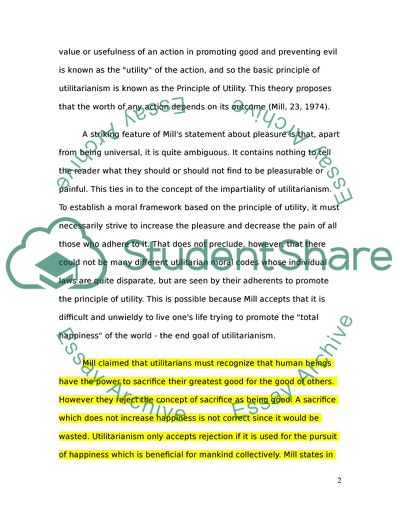Cite this document
(John Stuart Mill's Utilitarianism Conception Essay - 4, n.d.)
John Stuart Mill's Utilitarianism Conception Essay - 4. https://studentshare.org/philosophy/1711833-philosophy
John Stuart Mill's Utilitarianism Conception Essay - 4. https://studentshare.org/philosophy/1711833-philosophy
(John Stuart Mill'S Utilitarianism Conception Essay - 4)
John Stuart Mill'S Utilitarianism Conception Essay - 4. https://studentshare.org/philosophy/1711833-philosophy.
John Stuart Mill'S Utilitarianism Conception Essay - 4. https://studentshare.org/philosophy/1711833-philosophy.
“John Stuart Mill'S Utilitarianism Conception Essay - 4”. https://studentshare.org/philosophy/1711833-philosophy.


